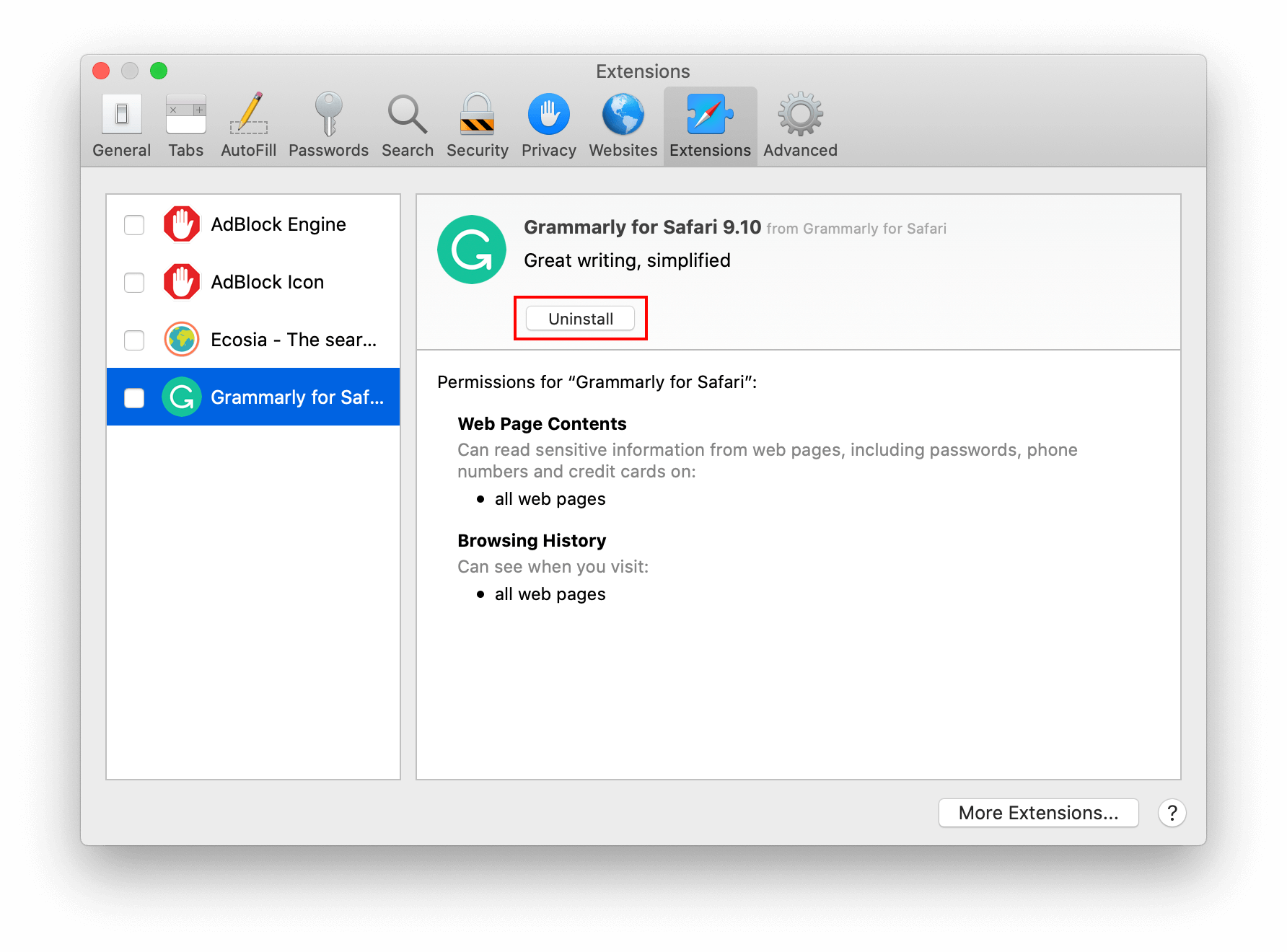
- Apple safari back browser runs risk cracked#
- Apple safari back browser runs risk install#
- Apple safari back browser runs risk software#
- Apple safari back browser runs risk download#
- Apple safari back browser runs risk mac#
A Trojan could, for example, give hackers access to our computers via a ‘backdoor’ so that they can access files and steal your data. Trojan Horse: A Trojan is a kind of malware that is hidden, or disguised in software. You may think that you will never fall for a phishing attempt, but could you be as confident about your parents? Phishing: We’ve all received phishing emails and we all know the dangers, but as criminals get more sophisticated (and maybe even learn to spell) can we be sure we won’t fall for a phishing attempt to gain our data or log in details. This was enough of an issue for Apple to announce that they will warn users of spyware attacks like Pegasus (more on that below). One example of this would be the Pegasus spyware that was know to have infected some iPhones. Spyware: Our data is incredibly valuable to criminals and spyware is designed to obtain this information. Either way, it was quickly identified and stopped.Ĭryptocurrency miners: Criminals have attempted to use Macs to mine bitcoin and the like as in the case of LoudMiner (aka Bird Miner). Ransomware: Ransomware has been detected on Macs – although the most recent case ThiefQuest / EvilQuest – didn’t actually work very well (in fact some would suggest it was pretending to be Ransomeware, but actually it was just transferring data). So it seems that people are at least wising up to these dodgy programs. These apps tend to hound users, which is part of their downfall, as due to the bad reputations of some of these apps the number of Macs affected has fallen, according to Malwarebytes.
Apple safari back browser runs risk mac#
Potentially Unwanted Programs (or PUPs): Famous examples include Advanced Mac Cleaner, Mac Adware Remover, and Mac Space Reviver.
Apple safari back browser runs risk cracked#
According to Malwarebytes: “macOS’ built-in security systems have not cracked down on adware and PUPs to the same degree that they have malware, leaving the door open for these borderline programs to infiltrate”.
Apple safari back browser runs risk software#
A virus is only one type of malware of which there are many, and unfortunately there have been cases on the Mac.Īdware: Once this malicious software is installed on a Mac it will show advertisements and pop ups for software – most likely for Potentially Unwanted Programs like those we will discuss next. A computer virus is so called because it is capable of replicating itself and spreading. The word virus gets used a lot more than it should be – a more accurate word would be malware. However, malware, dubbed Silver Sparrow, was found on the M1 Mac soon after launch so even Apple’s own chips are not immune.Ĭurious to know what Mac viruses are out there, perhaps because you were thinking you might spy some suspicious processes or malware names in Activity Monitor on your Mac? In this article we will endeavour to give you a complete list.īefore we run through the malware that’s been spotted on Macs we need to address this question. Even Apple’s Craig Federighi has admitted there is a problem, saying in May 2021 that: “We have a level of malware on the Mac that we don’t find acceptable.” To stay safe, we recommend you read our best Mac security tips and our round up of the best Mac antivirus apps, in which we highlight Intego as our top pick.Īnother thing to note is that Apple’s own M-series chips that it has been using in Macs since November 2020 are considered more secure than Intel processors. In recent years malware on the Mac actually decreased, however, as you will see if you read on, Macs are not completely safe from attacks. For more information read: how Apple protects you from malware. We also discuss whether Macs need antivirus software separately. This is part of Apple’s Gatekeeper software that blocks apps created by malware developers and verifies that apps haven’t been tampered with.

Apple safari back browser runs risk download#
Apple has all the malware definitions in its XProtect file which sits on your Mac, and every time you download a new application it checks that none of those definitions are present. In addition Apple has its own built-in anti-malware tool.
Apple safari back browser runs risk install#
If you were to install something from an unknown developer Apple would warn you to check it’s authenticity. You can specify whether only apps from the Mac App Store can be installed, or if you are happy to allow apps from identified developers too. You can check these settings in macOS Ventura’s System Settings > Privacy & Security and scroll to the Security section, or, if you are using Monterey or older, go to System Preferences > Security & Privacy > General. For example, macOS shouldn’t allow the installation of third-party software unless it’s from the App Store or identified developers. Luckily Apple has various measures in place to guard against such threats.


 0 kommentar(er)
0 kommentar(er)
